- Chemical composition and useful properties
- Pharmacological action of various parts of the plant
- Contraindications and overdose
- Indications for use
Parsley is a unique culture. Adding any part of the fragrant plant in vegetable salads, the first and second dishes, a person improves not only the taste of food, but also their own health. Regular use of greenery, root vegetables, parsley seeds can increase the body's resistance to bacterial and viral infections. Gradually, pain in the stomach disappears after eating, digestion and peristalsis normalize, edemas and excess weight disappear. But the medicinal properties and contraindications of parsley are closely related, based on the chemical composition of the spicy plant. Therefore, before using infusions and decoctions, you should consult a doctor.
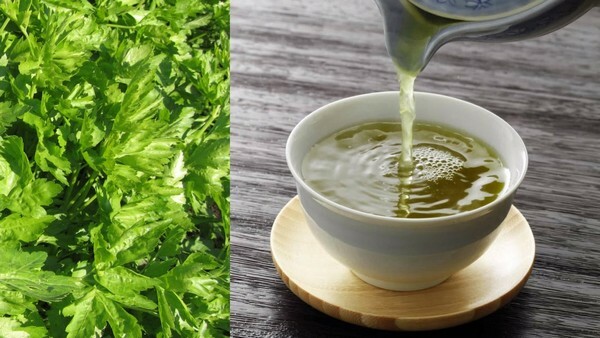
Chemical composition and useful properties of
The ability of parsley to prevent the development of respiratory pathologies( angina, sinusitis, bronchitis, tonsillitis, tracheitis) is based on a high concentration of ascorbic acid in various parts of the plant. This vitamin enhances immunity, improves blood vessels, speeds up metabolic processes. No less important is the antioxidant activity of ascorbic acid to protect cells and tissues from the negative influence of internal and external factors that cause their damage.
The use of parsley is also due to the presence in its fruits, roots, stem and leaves of the following biologically active substances:
- beta-carotene, a precursor of retinol. A powerful natural antioxidant substance takes part in strengthening the defenses of the body, normalizes the functioning of the immune system of adults and children;
- vitamins of group B - thiamine, riboflavin, pyridoxine. Organic compounds are involved in virtually all metabolic processes and further absorption of cleavage products;
- microelements. Magnesium is necessary for the proper functioning of the nervous and cardiovascular systems, and potassium strengthens the myocardium, normalizes the heart rate. A high content of zinc in the seeds and leaves of parsley is used to treat diseases of male reproductive organs;
- apeguitin. The effectiveness of this biologically active compound in preventing the formation of malignant and benign tumors is proved.
The chemical composition of parsley also includes tannic and resinous substances, flavonoids, phytoestrogens, organic acids. But the main therapeutic effects of the plant is provided by a combination of essential oils containing apion, alpha-pinene, myristicin, unidentified aldehydes, ketones, phenols, as well as stearic and palmitic acids.
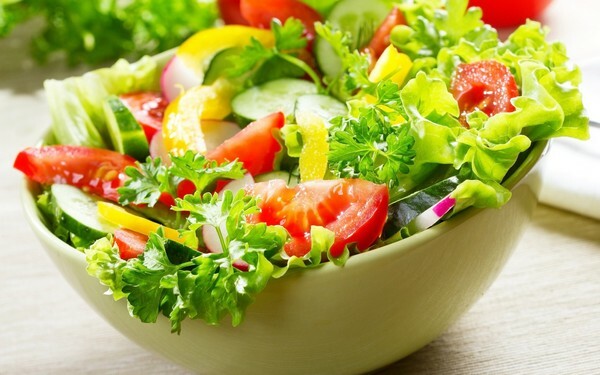
Pharmacological action of various parts of the plant
All the biologically active substances from the chemical composition of parsley are unevenly distributed in its roots, leaves and fruits. This should be considered before starting treatment. For example, you can get rid of excess weight with all parts of the plant, but parsley for men is useful only in the form of dry fragrant seeds, if it is used to improve potency. But there are general therapeutic therapeutic properties, which have both green, and fruits, and roots. These include:
- spasmolytic. Infusions and decoctions are used to reduce the severity of pain caused by spasms of the smooth muscle of the internal organs;
- is an anti-cold. The use of any form of parsley as an abundant drink helps to remove pathogenic microbes and viruses from the inflammatory foci, as well as toxic products of their vital activity;
- is a diuretic. The plant shows a powerful diuretic activity. Specialists of official and traditional medicine use this ability to reduce arterial and renal pressure, excrete slag from the body and excess of mineral compounds.
Root, seeds and parsley greens help to quickly and effectively cure diseases of the oral cavity - gingivitis and stomatitis. It is enough to chew any fresh part of the plant several times a day to stop inflammatory processes, to sanitize and get rid of an unpleasant smell.
Recommendation: Tannins, flavonoids and minerals from parsley determine the whitening properties of the infusion and fresh juice. Regular rubbing of the skin of the face or body allows you to lighten the upper layer of the epidermis, get rid of ugly pigment spots, and if necessary, and freckles.
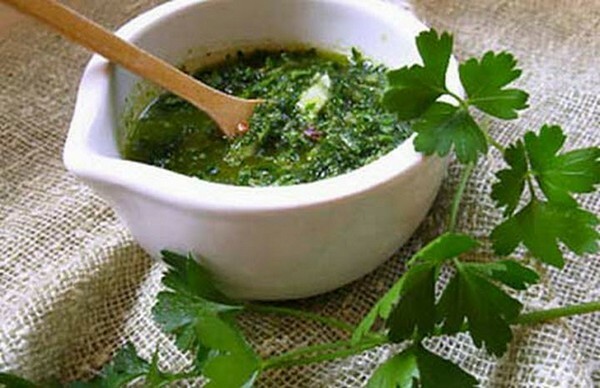
Root crops
Parsley in folk medicine is actively used to reduce excess secretion of sebaceous glands. If you rub your face with infusion of roots twice a day, then the unhealthy shine gradually disappears, the pores become narrower. And the use of decoction as a conditioner for hair allows for a short time to get rid of fatty and combination dandruff. Extract from root vegetables is a part of cosmetics for treating teenage acne due to drying effect. This part of the useful plant possesses the following properties:
- immunomodulating;
- antimycotic;
- anticonvulsant;
- wound healing;
- restorative.
Root decoction is used as an external agent in the therapy of ulcerative skin lesions, allergic rash, psoriasis. Active compounds from the composition of parsley show regenerative, anti-inflammatory and antimicrobial activity. Prepare the broth for this recipe:
- In an enameled container, pour 5 tbsp.spoons of crushed dry root vegetables and pour a liter of hot water.
- Boil for 2-3 minutes, cover and leave for 3 hours.
- Filter, use 0.4 cups a day before meals.
The medicinal infusion is best prepared from a juicy fleshy fresh root as follows:
- With a shallow grater, grind 100 g of root vegetable and place in a thermos bottle.
- Pour a liter of hot water and press for about three hours, filter, wring out the dry residue.
Because of the large amount of essential oils and tannic substances, it is necessary to use the infusion only after eating, 3 tbsp.spoon 2 times a day.
Spicy greens
The leaves of parsley contain a huge amount of vitamins and trace elements, so doctors recommend daily consuming about 50 grams of greenery in patients during the rehabilitation period. This addition to the diet helps a person recover quickly after surgery and chemotherapy. A diuretic effect of broths and infusions will remove from the body the accumulated decay products of pharmacological preparations. Of no small importance is the ability of aromatic leaves to increase appetite, from the absence of which many people with chronic pathologies of various life systems suffer. What is useful for parsley:
- increases visual acuity, including night vision;
- improves microcirculation;
- takes part in the delivery of molecular oxygen to all cells;
- optimizes the functioning of the glands of internal and external secretion;
- strengthens the walls of veins, arteries, capillaries, increasing their elasticity.
Many people notice that after eating dishes that are generously flavored with pinnate leaves of parsley, the psychoemotional state is normalized. Disappears nervous excitability and causeless anxiety, increases efficiency. To prepare the infusion from the leaves of parsley, it is necessary to cut finely 0,5 kg of green mass and pour 2 liters of boiling water. Infuse the mixture under the lid for about an hour, strain, squeeze and take 0.5 glasses after each meal. Cook the broth a little more complicated:
- A large bunch of greenery( about 200 g) finely chopped and poured into a saucepan.
- Pour 3 cups of water, bring to a boil and keep on fire for 3 minutes.
- Cool, filter and take 0.3 cups 2 times a day after meals.
Tip: When treating the skin with a decoction of parsley greens, pathogenic bacteria and yeast fungi are killed, metabolic processes are accelerated, facilitating the rapid healing of small and large lesions.
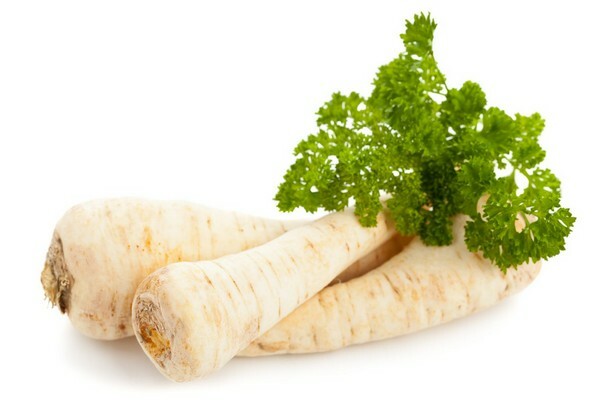
Seeds( fruits)
As ripening, parsley fruits accumulate a significant concentration of essential oils with antispasmodic properties. Gastroenterologists and traditional healers use it to treat diseases of the gastrointestinal tract. Spasmolytic effect is especially important in the therapy of pathologies, accompanied by aching "hungry" pain. These include:
- all kinds of gastritis with increased production of pepsin and hydrochloric acid;
- ulcerous lesions of the stomach and duodenum.
With regular use of infusions and decoctions, the functional activity of the pancreas increases. Normal production of digestive enzymes against the background of a decrease in the number of inflammatory foci. The useful properties of parsley to reduce the severity of dyspeptic disorders - increased gas formation, bloating, a feeling of raspryaniya. How to prepare an infusion from the seeds of a spicy plant:
- In teapot, pour a teaspoon of fruit and pour a glass of boiling water.
- Leave for 2 hours, filter.
- Take 0.3 cups 4 times a day after meals.
To prepare the broth, you should use two pots of different diameters and volumes:
- Put 3 tbsp in a small container.spoons of fruit and pour 2 glasses of hot water.
- Using a water bath, protil the broth for 10 minutes, filter.
As a rule, the broth should be taken at 2 tbsp.spoon 3 times a day before meals, but this volume may vary depending on the diagnosed pathology.
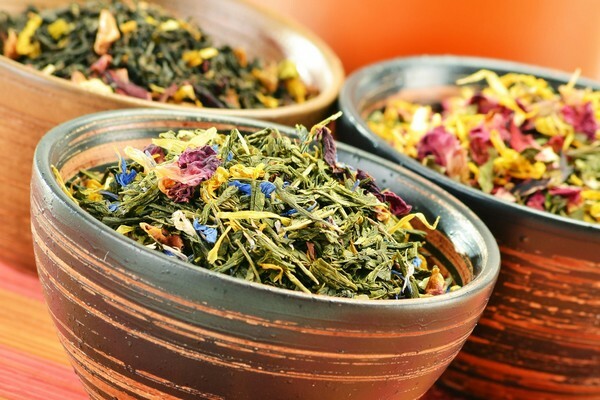
Contraindications and overdose
All parts of parsley, especially seeds and roots, are not intended for use in acute forms of such diseases of the urinary system:
- nephritis;
- kidney failure;
- cystitis;
- pyelonephritis;
- glomerulonephritis.
Infusions and decoctions of parsley can not be used to treat pregnant women and women breastfeeding. It is allowed only to add fresh green herbs in a reasonable amount. Any dosage forms of parsley are not assigned to patients with an individual sensitivity to biologically active substances from its chemical composition.
Warning: Exceeding the recommended dosages by the doctor or traditional healer, as well as the duration of the therapeutic course, will provoke nausea, vomiting, diarrhea, allergic reactions.
Indications for use
Infusions and decoctions of various parsley parts are used in the therapy of musculoskeletal disorders:
- gout;
- of osteochondrosis;
- polyarthritis;
- arthritis;
- lumbago;
- intervertebral hernia of various parts of the spinal column;
- intercostal neuralgia.
Due to its diuretic and anti-inflammatory effect, the plant removes organic and inorganic uric acid compounds from joint, cartilage, bone tissues. Almost all parts of parsley are used to treat the following diseases and pathological conditions:
- depressive syndrome, emotional instability;
- cholecystitis, pancreatitis;
- various arrhythmias;
- arterial hypertension;
- chronic constipation of non-infectious etiology.
Biologically active compounds from the chemical composition of plants with regular use of infusions and decoctions gradually dissolve bile and kidney stones, and also reduce the amount of cholesterol blocks in the blood vessels.
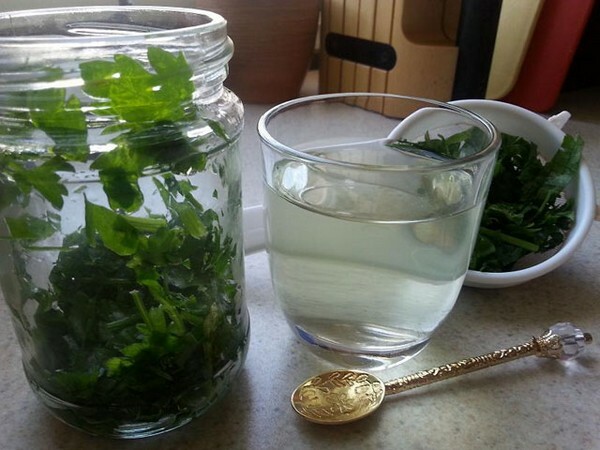
Chronic cystitis
Parsley is used only for the treatment of chronic cystitis, triggered by pathogenic microorganisms. Acute disease requires urgent use of broad-spectrum antibiotics. Parsley with cystitis, who took a chronic form of flow, is recommended with the following objectives:
- slowing the growth and active reproduction of pathogenic bacteria;
- cupping of the inflammatory process;
- sanation of the bladder cavity;
- decrease in the severity of pain;
- increased frequency of urination;
- excretion of pathogenic microbes from the bladder and urethra.
Treatment of female pathologies
When brewing parsley in infusions and decoctions passes a large number of essential oils and phytoestrogens - analogues of female sex hormones produced by the ovaries. The use of such liquid medicinal forms of plant raw materials can eliminate the symptoms of menopause:
- hot flushes, redness and a feeling of heat in the upper part of the trunk;
- headache, dizziness;
- sharp mood changes, tearfulness;
- rapid fatigue, weakness;
- insomnia.
Traditional healers advise drinking 3 tbsp.spoons of decoction 2-3 times a day with abundant discharge during menstruation, disorders of the monthly cycle. The use of parsley for the woman's body is to prevent the development of iron deficiency anemia, the elimination of abdominal pain and emotional instability.
Increased potency in men
Broths and infusion from all parts of the plant have a mild effect on the organs of the reproductive system of men. A significant concentration in the parsley of the microelement of zinc promotes an increase in the production of the sex hormone testosterone. Due to the increase in its quantity in the systemic circulation, a positive effect is noted:
- increases potency;
- increases the duration of sexual intercourse;
- improves circulation in the pelvic organs.
The use of infusions and decoctions improves spermogram results in future fathers. Parsley for potency and elimination of the inflammatory process in the prostate gland is taken by 0.5 cup of drink 2 times a day. The duration of the therapeutic course is 30 days.
It's interesting: Using only 5-6 sprigs of parsley during the day provides the human body with the necessary amount of vitamin C, which prevents the pathological effects of free radicals. This property is widely used in cosmetology and dietology to prevent premature skin aging in women and men.
